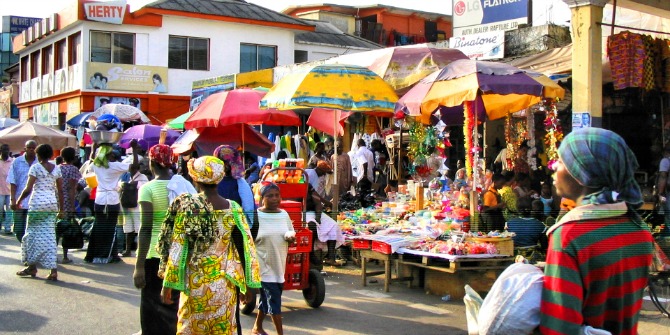In June 2022, when Ghana approached the IMF for a $3 billion bailout package, it was because the country’s gross international reserves had begun to deplete so rapidly that it placed enormous pressure on the cedi, making it extremely difficult to meet its import bills.
According to the 2023 International Monetary Fund Regional Economic Outlook Report, Ghana’s international reserves will end in 2023 at nearly three weeks of import cover (0.8 months). Zimbabwe (0.2 months), South Sudan (0.5 months) and Ethiopia (0.6 months) are the only countries expected to record import cover lower than Ghana.
Ghana's reserves have been under extreme pressure from the demand and supply side of the foreign exchange market. On the demand side, Ghana has experienced a surge in imports in recent years, driven by the expansion of public and private investment, particularly in the oil and gas sector.
On the supply side, Ghana has faced a decline in export earnings due to lower commodity prices and production disruptions caused by the COVID-19 pandemic and Russia’s invasion of Ukraine. Numerous downgrades also forced the country out of the Eurobond market. For the past six years, Ghana has survived on inflows from the capital market, where it usually sees an average of $1 billion to help manage protracted balance of payment challenges.
One of the key indicators of any economy’s external vulnerability is its level of international reserves, which measures the country’s ability to meet its foreign exchange obligations and cushion itself against external shocks. Bank of Ghana (BoG) data shows the country’s gross international reserves have dwindled almost 40% in less than two years, and as of February 2023, import cover was below three months.
The alarming level of the country’s reserves made it impossible to continue with debt servicing this year, especially at the external front — interest payments on external loans in 2023 have been projected to cost the government more than $3 billion, and the debt-to-GDP ratio is expected to reach as high as 99% by the end of the year. With just close to $3 billion left as net foreign reserves as of February 2023, the government needs close to $500 million each month to bring in oil products alone. Finance Minister Ken Ofori-Atta said in the 2023 budget statement that, on average, Ghana’s import bill exceeds $10 billion annually.
The fall in reserves will have implications for the stability of the country’s exchange rate and inflation. The BoG operates a managed float regime by which it occasionally intervenes to smooth out excessive volatility and maintain orderly market conditions. However, BoG’s ability to intervene effectively depends on its level of reserves, which provide a buffer against external shocks and speculative attacks. The low level of reserves limits the apex bank’s capacity to defend the cedi against depreciation pressures arising from high import demand, low export earnings or capital outflows. A depreciating cedi can have negative consequences for inflation, as it increases the cost of imported goods and services and the cost of servicing foreign currency-denominated debt. 1
Ghana’s growth rate has been revised downwards by the IMF to 1.6% after expanding by more than 5% in 2021; inflation is expected to remain as high as 45.4% in 2023, and the external debt-to-GDP ratio may hover around 52% in the period under review. At this point, any delay in obtaining the IMF’s $3 billion support could erode those thinning reserves, and gains made in reducing inflation and stabilising the cedi against major trading currencies could be thrown off gear.
Twitter: @isaackofiagyei
Latest Stories
-
GCB Bank to launch special ‘Hajj Account’ as part of inclusive financial offerings
2 hours -
GH¢1 fuel levy eight times worse than scrapped E-Levy – Bawumia
2 hours -
Interior Ministry warns public against fake security services recruitment
2 hours -
Tanzania announces shutdown of X because of pornography
2 hours -
Education Minister condemns sexual harassment of female employees, calls for institutional reforms.
2 hours -
Court orders destruction of $350m cocaine intercepted in Ghana
2 hours -
Family of late PURC Board Chair pays courtesy call on President ahead of final funeral rites
2 hours -
Mechanising the cashew economy of Ghana to rake in more profits
2 hours -
Ronaldo fires Portugal into Nations League final with 2-1 win over Germany in Munich
3 hours -
Anass Sabit: Beyond Hajj – My spiritual journey in Mecca reveals Islam’s “lesser” pilgrimage, Umrah
3 hours -
Chelsea sign Ipswich striker Delap in £30m deal
3 hours -
GH₵1 per litre isn’t small money – GPRTU slams gov’t over new fuel levy
3 hours -
Sam George outlines evidence-based plan to reduce mobile data costs
4 hours -
AT Ghana gets Canadian investor, Rektron Group
4 hours -
Mahama to set up inter-ministerial committee to implement economic dialogue recommendations
4 hours

